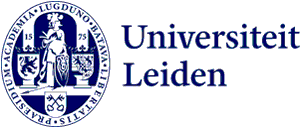
LUMC researchers use viruses to fight prostate cancer
Modified viruses can both kill cancer cells and activate the immune system. This is what an LUMC team discovered while researching a new prostate cancer therapy. Researcher Marjan van de Merbel explains how they went about this.
Viruses that combat cancer rather than cause disease: researchers from the Leiden University Medical Center (LUMC) have shown that this is a promising approach in the fight against prostate cancer. This is one of the most common forms of cancer in men, with around 13,000 men in the Netherlands being diagnosed with it each year.
Not all scientific research is funded by the government, which makes private donations essential. This research would not have been possible without a grant from the Leiden University Fund’s Den Dulk-Moermans Fund. Donate to the Leiden University Fund to make important research possible.
Two-pronged attack on cancer
Researcher Marjan van de Merbel and her team tested what are known as oncolytic viruses. These are viruses especially developed to attack cancer cells. They have a dual effect, Van de Merbel explains, not only killing cancer cells but also activating the immune system to improve its ability to fight tumours.
Better replication
For their study, the researchers developed an advanced 3D lab model. Instead of growing cells flat in petri dishes, they created three-dimensional mini-tumours cultivated with immune cells. This model more accurately mimics the real-life conditions inside the human body.
Two viruses tested
The team tested two different viruses (to be precise: reovirus jin03 and adenovirus GoraVir). The results for both viruses were promising. They destroyed prostate cancer cells while stimulating the production of substances that activate the immune system. ‘We saw not only that the cancer cells were destroyed but also that more inflammatory mediators were created that help fight the tumour’, said Van de Merbel.
Combined with existing therapy
The researchers also tested the viruses in combination with what are known as checkpoint inhibitors: medicines that release the ‘brakes’ on the immune system. One of these (Ipilimumab) did have an effect as a monotherapy, but when combined with the oncolytic viruses, the checkpoint inhibitors did not yet produce the hoped-for effect.
Bladder cancer research
Although more research is needed, Van de Merbel notes, this innovative method gives new hope for the treatment of prostate cancer. Based on the results, KWF Dutch Cancer Society has awarded the team a new grant for similar bladder cancer research. Van de Merbel is optimistic: ‘The new grant will allow us to expand our research. The aim is to develop more efficient forms of immunotherapy for prostate and bladder cancer patients, tailored to their individual needs.’
